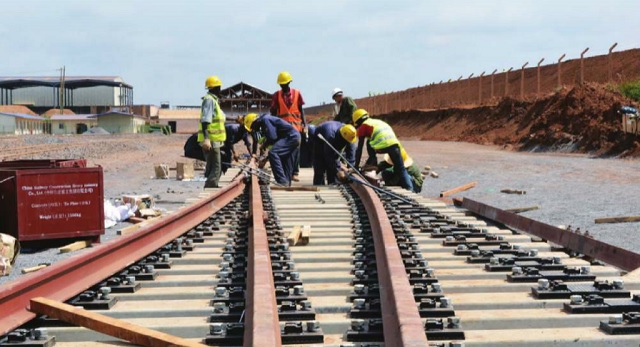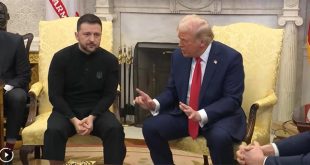
Chinese, Whitaker in trouble
So far, however, Museveni has not ordered CHEC out – yet.
In the latest meeting between him and CHEC on June 21 at State House, The Independent has learnt that he only managed to squeeze a 3% cut or over US$$ 50 million off the cost price.
Insiders say the Chinese insist the price they quoted was the best and they only allowed the tiny reduction in order to look inflexible before the President.
The recent developments have put Museveni at odds with his main advisor on the deal, the former US trade representative for Africa, Rosa Whitaker.
Whitaker is a major broker for CHEC and was very instrumental in convincing Museveni to kick out other Chinese companies in favour of CHEC.
But she appears to have rubbed Museveni the wrong way when she reportedly pleaded for Kyamugambi to be retained on the job and failed. With Kyamugambi out and Whitaker sidelined, CHEC is walking on a thin wire.
In 2017, Museveni also threatened to kick out the Chinese. That was after his counterpart, Tanzania President John Pombe Magufuli told him that Tanzania is getting a better deal of $5 million per km from the Turkish firm Yapi.
Yapi officials even secured a meeting with President Museveni and confirmed to him that they could construct the railway at a much cheaper cost.
Indeed, the anti-CHEC camp appeared to be winning when the Works Minister, Monica Azuba wrote to Attorney General William Byaruhanga on September, 14, 2017, seeking guidance on termination of CHEC’s contract.
Byaruhanga wrote back on September 27, 2017 cautioning that the decision required to be grounded on a solid basis, which the minister had not provided in her letter. In the end the contract was not terminated.
Two factors appear to have swayed Museveni to retain the Chinese; one was because they could support Uganda with a loan from their EXIM bank and two, they had Whitaker’s backing.
Museveni has tried to borrow money for the SGR project from other financiers and failed. It is only China, which was willing to give Uganda money but on condition that the deal goes to a Chinese company.
The trouble is that the SGR is not a Uganda only project. It is part of the greater East Africa region infrastructure project designed to be implemented almost simultaneously by Uganda, Kenya, Tanzania, and Rwanda.
The East African leaders held a ground-breaking ceremony for the SGR at the Commonwealth Resort Munyonyo in Kampala in 2014.
Kenya hit the ground running, three years later in 2017, had completed construction of its Mombasa-Nairobi section of the SGR.
Kenya is now constructing a 120km line from Nairobi to Naivasha at a cost of $1.7 billion, to be followed by the 266km line from Naivasha to Kisumu Port at a cost of $3.6 billion. Depending on when Uganda finally takes off, Kenya appears ready to do the 107km line connecting Nairobi to Malaba at a cost $1.7, billion.
Even Tanzania, which previous considered a laggard and locked out of the short-lived so-called “coalition of the willing, is now chugging ahead of Uganda.
It is constructing the second phase of its 1,219km SGR which seeks to connect Dar es Salaam to the port city of Mwanza on the shores of Lake Victoria in northern Tanzania.
Phase two involves construction of a 426-km line from Morogoro to Makutuporo region in Dodoma.
Phase One whose ground-breaking was held in May last year, involves replacement of the old Dar es Salaam to Morogoro narrow gauge line with a new standard-gauge railway line.
The line is being constructed for $ 1.2 billion by Yapi Merkezi and Portugal’s Mota-Engil Africa.
In January, Tanzania and Rwanda also launched the Isaka-Kigali standard gauge railway (SGR) line that will accommodate electricity-driven locomotives.
Initially, it was the Uganda SGR—the western route—that was supposed to connect to Rwanda first. However, with Uganda dragging its feet, Rwanda opted to connect to the Tanzania SGR.
When he gave the State of the Nation Address recently, President Museveni only hinted about the SGR without any firm dates or financial outlays beyond Shs50 billion.
Uganda’s fumbling affects mainly Kenya’s plans to construct an SGR loop from Nairobi to Malaba.
That line, experts say, only makes economic sense if it comes to Uganda and connects to a similar SGR from Malaba to Kampala. It is a condition that the Chinese financiers, EXIM bank are insisting on to give both Kenya and Uganda a loan.
Under the arrangement, each member state is supposed to do its bit. However, while the other countries make decision quickly and implement, Museveni’s camp appears stuck in contract signing bickering.
 The Independent Uganda: You get the Truth we Pay the Price
The Independent Uganda: You get the Truth we Pay the Price


